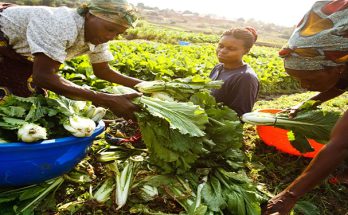 Zambia has set aside 100,000 tonnes of maize for export to East Africa and other countries in the Great Lakes region, with the bulk of the corn destined for Kenya, in a deal that is hoped to generate much needed cash for the country.
Zambia has set aside 100,000 tonnes of maize for export to East Africa and other countries in the Great Lakes region, with the bulk of the corn destined for Kenya, in a deal that is hoped to generate much needed cash for the country.
Kenya, Rwanda, and Burundi are some of the countries expected to import the maize, set aside by the Food Reserve Agency (FRA) as part of 1,4 million tonnes set aside from the more than 3 million tonnes harvested in the 2016/17 season.
The export of 100,000 tonnes of maize is not part of the over 300,000 tonnes destined for the same region but is a government to governments deal.
The earlier consignment was agreed by various grain traders drawn from Zambia and other countries that met in Zambia recently.
“We have an urgent request for about 100,000 tonnes of maize from East Africa and other parts of the Great Lakes region for the maize.
“ The bulk of it will go to Kenya which is in dire need of the grain,” Julius Shawa told The Southern Times in Lusaka on the sidelines of the Trade and Investment meeting in Lusaka.
“The demand is very huge. Kenya alone is actually asking for about 1,000,000 tonnes to meet the shortfall but we have transport challenges.”
Shawa added that the deal that could see Zambia realise US$13 million.
A total of 14 companies from East Africa have been picked to buy maize from FRA. The consignment will be transported to East Africa either through Tanzania-Zambia Railway Authority up to Dar-es-Salaam.
FRA executive director Chola Kafwabulula stated that government has mandated agency to dispose of 100,000 tonnes of maize to any trader that has capacity to export.
The 14 companies have been picked from 42 traders who needed a tonnage of 1,052,210.
“We have allocated maize to 29 companies of which 26 are Zambian while three are foreign. The maize to be exported is from the old stock,” he said.
FRA wants to open a market beyond the traditional export market to enable farmers sell their excess maize after the agency buys the authorised 500,000 tonnes for the reserves, a move which has been commended by Minister of Agriculture Dora Siliya for prioritising Zambian companies in allocating the maize purchase.
FRA has also been allowed to carry out transactions on a commercial basis with government remaining a guarantor for the loans.
“Such initiatives are aimed at empowering Zambian exporters. I am impressed that the majority of the selected companies are Zambian.
“The export season will continue for the next 12 months, especially to Kenya, to ensure that even excess maize is exported,” she said.
Minister of Finance Felix Mutati said government would work with FRA and the private sector to create more markets for exports. Government will facilitate export of maize at exit points such as Nakonde and Kasumbalesa border posts to make the process favourable for the traders.
Zambia has been urged to take advantage of the removal of import duty on Zambian maize in Kenya and export more to enhance revenue for the country.
Meanwhile, the World Food Programme (WFP) needs about 100,000 tonnes of maize from Zambia to complement other countries providing the needy in the affected East African region including Kenya.
It plans to kick start the programme by August with about 30,000 tonnes.
“We have requests to provide food in excess of 100,000 tonnes to areas that need relief in Kenya and other countries in the region and we need to start like yesterday”, says Simon Cammelbeeck, WFP’s country director.
“Our main challenge is transport, but whatever is the case, we need to find a way of transporting the food, it’s very urgent.”
On average, WFP reaches more than 80 million people with food assistance in 75 countries annually.



